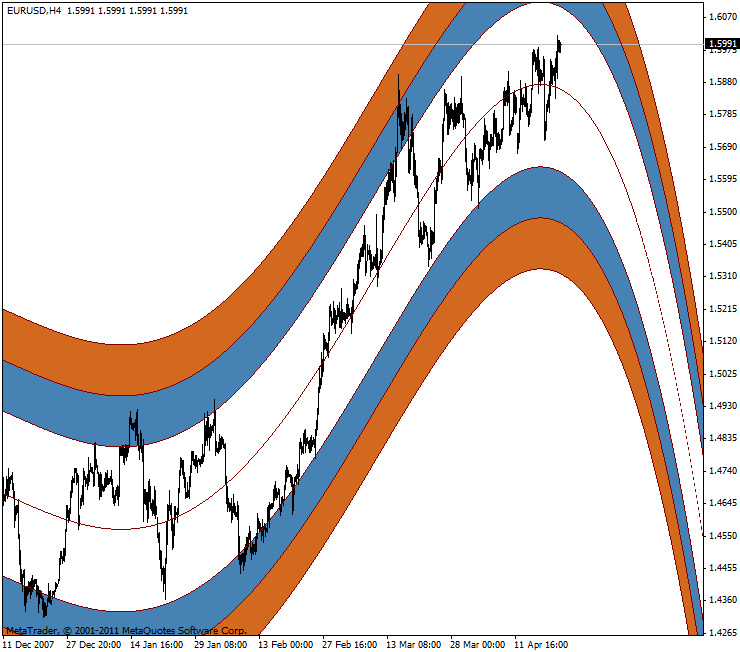Let's say we have a Binary Options 5-minute trading strategy that relies on multiple indicators and exploits price reversals in currency pairs. Now let's say there is a combination of inputs for the strategy's indicators that work really well together and produce a 65% average win rate when backtested against three years of minute-by-minute tick data.
In theory, can we expect this strategy continue to produce a 65% average win rate?
For one of the indicators, we use a Polynomial Regression Channel of length 250. This tells us when the price spikes outside the recent average price range and thus offers a clue as to when the price will likely reverse.
In testing such a strategy, I have noticed that some days it performs extremely well (sometimes yielding a 75% win rate with 12/14 trades winning) whereas others it bombs (20% win rate with only 2/10 trades winning).

